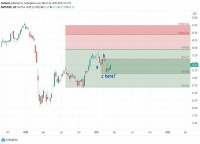|
Bay' bi Sir' al Suq (payment at a market-determined price) is often discussed in Islamic finance due to the fact that the price is not actually specified (i.e. at the contract's inception) and this is deemed to generate gharar (uncertainty). The question is whether this price uncertainty is excessive/unacceptable or whether the circumstances of the contract deem otherwise. There are various degrees of gharar such as the one known as al-gharar al-kathir (excessive) which renders the contract invalid. On the other end you have al-gharar al-yasir (minimal or trivial) which is tolerated and permissible. It is the middle ground of al-gharar al-mutawassit (or average gharar) that requires case by case evaluation. What the Scholars Say While scholars have stated that price (thaman) must be fully determined at the time of contract, the means of this determination are subject to some disagreement. For many jurists, it is not valid to sell at "the market determined price" or "at the price at which people sell" or a the price "that so and so chooses" since the price is unknown. But this sort of sale, "market order" can have the price specified in such a way that there can be little chance of disagreement. Imam Ahmad ruled for the validity of sale at the price to be determined by the market at a specified future time, without specifying that price at the time of the contract due 'Urf. Ibn Taymiyyah states that a price may be determined in exact figures or it may be thaman al-mithl, the price that other people pay, or the market price, provided that only one price prevails, or it may be determined in an manner that the parties find agreeable and is clear enough to eliminate doubts. To avoid confusion, what is referenced in this case is a "market determined price at the item at the conclusion of the sale", not any future price. He gives as example the Ijma' of scholars on the validity of assigning a proper dower (mahr al mithl) in a contract for marriage. The idea of proper price (thaman al mithl) is analogous to that of proper dower. He states that there is nothing in Quran or Sunnah against the concept and general custom has validated it. Ibn al Qayyim has also favored permitting this type of sale. Other scholars of note who permitted bay' bi sir' al suq include: Al Khatib al Shirbini (Shafii) Abu Ishaq a Shirazi (Shafii), Ibn Juzayy (Maliki), Al Dardir (Maliki), Mari Ibn Yusuf (Hanbali), Ibn Qayyim al Jawziyya (Hnbali), Ibn Hazm all have approved. Ahmad Ibn Hanbal issued an afirmative fatwa on it. Md Yusuf Musa supported the Hanbali position by observing that specification of an exact figure is not a Shariah requirement. Specifying market prevailing price on a specific date is clear and does not leave room for disagreement and dispute. This view has found support from Ahmad Yusuf Sulayman and Ahmad Hasan. In this there is little chance of excessive gharar. What it means For most, the sale need not refer to a set or specific price in order to be valid. It is still valid and there is no excessive gharar as long as the price is set in a way that is acceptable to both parties and cannot lead to disputes. According to Kamali, this lends credence to his argument that Futures should be acceptable. The sheer fact that futures are extremely liquid and price determination is rarely (never?) an issue in any futures market does give them more justification, certainly but there are many more steps to the argument and many are more are debatable. The acceptability of Bay' bi Sir' a Suq has a direct impact on the earlier article on Istijrar (see reference link), of course, since in Istijrar individual or Sub-Murabahas refer to prices only fixed at the time of execution of that Sub-Murabaha. No offer and acceptance is needed, and price is set only by reference to an underlying market. It probably does not help with anything illiquid (say Tier 3 assets) which would be priced by model, etc. It appears that this price-referencing mechanism applies only to those fungibles for which there is a price. References
Dr Wahbah al-Zuhayli, Financial Transactions in Islamic Jurisprudence,
vol 1, translated by Md El-Gamal, Dar al Fikr, Damascus, 2002, p 107. Your feedback and comments are very important to us, please feel free to contact the author via email. |
Opalesque Islamic Finance Intelligence
Featured Structure: Istijrar Revisited - Bay' bi Sir' al Suq by Nikan Firoozye, PhD |
|





 RSS
RSS










